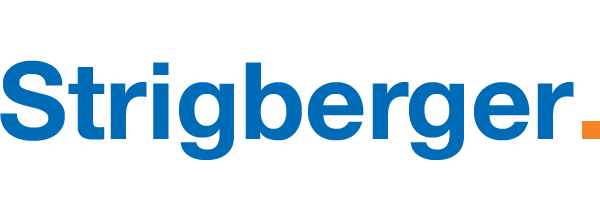The Ontario Court of Appeal has ruled in a priority dispute that the respondent insurer does not have to reimburse the applicant insurer for legal fees, adjuster’s fees, administrative costs, and disbursements the applicant insurer incurred while handling the SABS claim.
Factual Context and Procedural History
In Echelon v. Unifund[1], Echelon paid accident benefits to a claimant while asserting that Unifund, as the higher-priority insurer, was ultimately responsible under section 268(2) of the Insurance Act to pay. The arbitrator agreed that Unifund was the priority insurer and ordered it to reimburse Echelon for the benefits paid and arbitration costs.
However, he declined to order reimbursement of the more than $100,000 in pre-arbitration adjusting, mediation, and legal costs incurred by Echelon in managing the SABS claim. On this issue, the arbitrator found that OReg 283/95 did not allow it. He held that the legislature decided to limit such recovery to cases where the respondent insurer had breached section 2.1 (7) of the Regulation (“deflection”):
2.1 (7) An insurer that fails to comply with this section shall reimburse the Fund or another insurer for any legal fees, adjuster’s fees, administrative costs and disbursements that are reasonably incurred by the Fund or other insurer as a result of the non-compliance.
The Superior Court allowed Echelon’s appeal, relying on the doctrine of unjust enrichment to award reimbursement of the disputed expenses.
The Court of Appeal reversed the appeal judge’s decision, reaffirming the arbitrator’s original ruling in Unifund’s favour.
Court of Appeal’s Analysis
The core issue before the Court of Appeal was whether OReg 283/95 allows an arbitrator to routinely invoke equitable principles of unjust enrichment in priority disputes by ordering the type of reimbursement provided under section 2.1(7) of the Regulation. Put another way, can an arbitrator compel recovery of pre-arbitration expenses in cases that don’t trigger section 2.1(7) of the Regulation?
The Court noted that only section 2.1(7) of OReg 283/95 permits cost/expenses recovery, and only in cases where there has been improper deflection. The absence of broader language regarding reimbursement of expenses indicates a deliberate legislative policy choice to limit such recovery to those narrow circumstances.
On the issue of unjust enrichment, the equitable doctrine requires an enrichment and a corresponding deprivation to have occurred without a juristic (i.e., legal) reason. The Court of Appeal rejected the lower court’s reliance on unjust enrichment as a basis for expanding cost recovery in non-deflection cases. The Court found that if the regulation does not authorize reimbursement in non-deflection cases, the lack of a “juristic reason” for the enrichment is irrelevant because the regulation itself provides that reason.
What About the Fund?
The Motor Vehicle Accident Claims Fund intervened to argue that it should be entitled to reimbursement in all priority disputes, given that its costs come from public funds. The Court declined to decide this issue but left the door open for future cases. It also reminded the Minister that if broader cost recovery powers are needed for the Fund, the proper route is through legislative amendment, not judicial interpretation.
Implications for the Industry
This decision is significant for insurers, claims professionals, and counsel navigating Ontario’s priority dispute scheme. The issue of whether insurers were allowed to recover extra expenses/file-handling costs has been an unsettled issue for years. I usually advised my clients to seek reimbursement when they were the applicant and deny reimbursement when they were the respondent!
Now that the Court of Appeal has held reimbursement isn’t available unless section 2.1(7) of OReg 283/95 applies, we need to adapt to our new reality. Claims and litigation strategy may need to be recalibrated. But insurers handling accident benefits claims pending the outcome of priority dispute should continue to do so as if there was no priority dispute. Insurer’s should not change their adjusting practices to lower their handling costs just because they can’t seek reimbursement for same from the priority insurers. For example, an insurer shouldn’t approve every claim and avoid a LAT dispute just because they won’t be reimbursed for investigation and legal expenses.
Time to teach an old Regulation new tricks
I do think the industry should consider pushing for legislative amendment to OReg 283/95 to allow recovery of handling expenses in certain circumstances or, at the very least, allow an arbitrator some discretion to award such reimbursement.
I frequently preach that the priority insurer should endeavour to take over the claims file sooner than later. This approach enables them to manage the claim efficiently and prevents them from inheriting a potentially disorganised claims file from the applicant insurer. While some insurers in the industry agree with this perspective, others do not.
Established case law prevents insurers from disputing priority once they have accepted priority. Respondent insurers now have even less incentive to accept priority. They can delay acceptance or postpone the priority dispute hearing until the paying insurer has undergone a LAT hearing, reconsideration, and appeals, without facing any risk of having to reimburse the applicant insurer for those expenses. Which is somewhat crazy, considering the applicant insurer is fighting at the LAT to lower the amount of benefits it pays to the claimant under the SABS, which directly benefits the respondent insurer when it must reimburse the applicant insurer for benefits paid. To go even further, the applicant insurer can win a CAT hearing at the LAT, which means the respondent insurer ultimately won’t have to pay the claimant CAT-level benefits for the life of the SABS file, but the respondent insurer avoids the costly LAT hearing at the applicant insurer’s expense.
I also see issues on matters where the priority dispute is between two or more respondent insurers – and there is no question the applicant insurer doesn’t have priority. Now the applicant insurer has no recourse to seek reimbursement of their handling and LAT dispute expenses incurred while the respondent insurers battle priority between themselves.
This all seems wrong to me.
It’s been almost 15 years since OReg 283/95 underwent significant amendments. It might be time to make some more changes.
See Echelon General Insurance Company v. Unifund Assurance, 2025 ONCA 324
[1] Echelon General Insurance Company v. Unifund Assurance, 2025 ONCA 324


